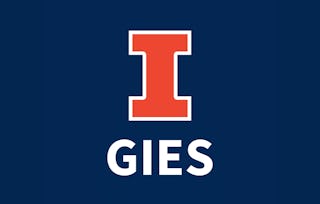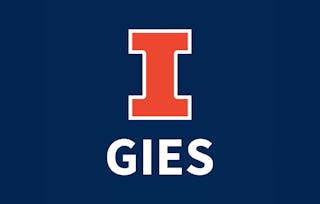This course focuses on the recognition, measurement and subsequent accounting for various types of liabilities. The content includes:

Accounting Analysis II: Measurement and Disclosure of Liabilities

Accounting Analysis II: Measurement and Disclosure of Liabilities
This course is part of Financial Reporting Specialization

Instructor: Scott Mendoza
12,870 already enrolled
Included with
131 reviews
Recommended experience
What you'll learn
Describe the accounting process related to accounting for liabilities (from origination of transactions to disclosure in the financial statements)
Describe liabilities and contingencies and demonstrate the appropriate accounting treatment, including required disclosures
Demonstrate the accounting for bonds (including par, discount, and premium bonds)
Explain and demonstrate the accounting for pension plans
Skills you'll gain
Details to know

Add to your LinkedIn profile
67 assignments
See how employees at top companies are mastering in-demand skills

Build your subject-matter expertise
- Learn new concepts from industry experts
- Gain a foundational understanding of a subject or tool
- Develop job-relevant skills with hands-on projects
- Earn a shareable career certificate

There are 8 modules in this course
In this module, you will become familiar with the course, your instructor and your classmates, and our learning environment. This orientation will also help you obtain the technical skills required to navigate and be successful in this course. Next, you will be introduced to the concepts of current liabilities and contingencies. You will learn how to classify liabilities as current or long-term, including consideration of refinancing arrangements. The module also describes the criteria for recognizing and/or disclosing contingencies.
What's included
13 videos6 readings11 assignments1 discussion prompt1 plugin
In this module, you will be introduced to the concept of long-term debt. You will learn about the different types of bonds and how each type results in different accounting, including bonds sold at a premium or discount. The module also explains the recognition of interest and bond extinguishment.
What's included
9 videos2 readings10 assignments
In this module, long-term debt will be discussed in more detail. Students will learn how to account for other aspects of bond accounting, including bond issue costs, fair value accounting, convertible debt, troubled debt restructuring, issuances between interest dates, and differences between U.S. GAAP and IFRS.
What's included
11 videos2 readings12 assignments
In this module, you will be introduced to the most recent lease accounting standards issued by the Financial Accounting Standards Board (FASB). Starting with the definition of a lease, this module will discuss features of the model related to both lessors and lessees. It will also illustrate the classification of leases, initial recognition, and subsequent measurement.
What's included
7 videos2 readings8 assignments
In this module, we continue the discussion of the lease accounting model. You will learn how to account for leased asset purchase options, leased asset residual values, sale leaseback accounting, and the differences between U.S. GAAP and IFRS when accounting for leases.
What's included
9 videos2 readings10 assignments
In this module, you will be introduced to accounting for pension benefits. We will explore the basic features of accounting for defined benefit plans, including benefit obligations, plan assets, and the components of net periodic benefit cost.
What's included
7 videos2 readings8 assignments
In this module, you will continue your study of accounting for employee retirement benefits. We will learn how to account for plan amendments and the recognition of pension gains and losses. We will also discuss a comprehensive recognition of pension activities. The module will conclude with a discussion of the major differences between U.S. GAAP and IFRS with respect to pension accounting.
What's included
8 videos2 readings8 assignments
This module is for you to tell us what you think of the course.
What's included
4 readings1 peer review1 discussion prompt1 plugin
Earn a career certificate
Add this credential to your LinkedIn profile, resume, or CV. Share it on social media and in your performance review.
Build toward a degree
This course is part of the following degree program(s) offered by University of Illinois Urbana-Champaign. If you are admitted and enroll, your completed coursework may count toward your degree learning and your progress can transfer with you.¹
Instructor

Offered by
Explore more from Business Essentials
 Status: Free Trial
Status: Free TrialUniversity of Illinois Urbana-Champaign
 Status: Free Trial
Status: Free TrialUniversity of Illinois Urbana-Champaign
 Status: Free Trial
Status: Free TrialUniversity of Illinois Urbana-Champaign
 Status: Free Trial
Status: Free Trial
Why people choose Coursera for their career

Felipe M.

Jennifer J.

Larry W.

Chaitanya A.
Learner reviews
- 5 stars
80.15%
- 4 stars
11.45%
- 3 stars
4.58%
- 2 stars
2.29%
- 1 star
1.52%
Showing 3 of 131
Reviewed on Oct 10, 2020
The course was perfect as a whole. Easily understandable lectures. The course contents were extremely good. It helped a lot to improve my understanding on certain topics. Thank you so much.
Reviewed on Aug 9, 2020
This course is too hard for me. I will review it after I learn a book.
Reviewed on Jun 26, 2021
Prof. Adel Ibrahim .. his explaining was perfect and every video with example. it made the course very easy to understand it

Open new doors with Coursera Plus
Unlimited access to 10,000+ world-class courses, hands-on projects, and job-ready certificate programs - all included in your subscription
Advance your career with an online degree
Earn a degree from world-class universities - 100% online
Join over 3,400 global companies that choose Coursera for Business
Upskill your employees to excel in the digital economy
Frequently asked questions
Once you enroll for a Certificate, you’ll have access to all videos, quizzes, and programming assignments (if applicable). If you choose to explore the course without purchasing, you may not be able to access certain assignments.
You will be eligible for a full refund until 2 weeks after your payment date. You cannot receive a refund once you’ve earned a Course Certificate, even if you complete the course within the 2-week refund period. View our full refund policy.
Yes! Coursera provides financial aid to learners who would like to complete a course but cannot afford the course fee. To apply for aid, select "Learn more and apply" in the Financial Aid section below the "Enroll" button. You'll be prompted to complete a simple application; no other paperwork is required.
More questions
Financial aid available,

